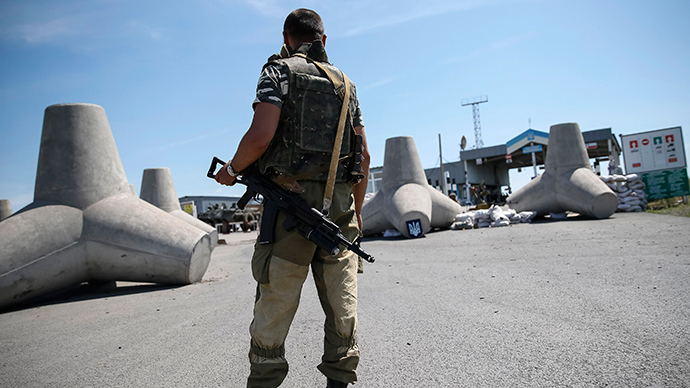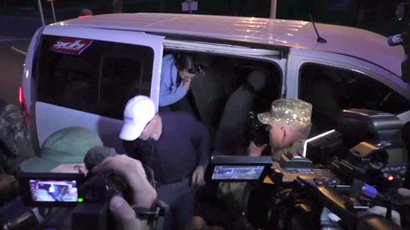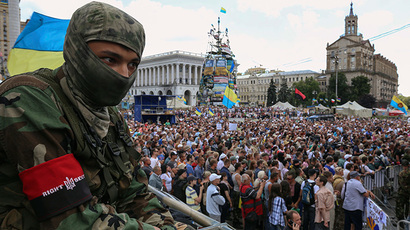Moscow offers to allow OSCE observers at Russia-Ukraine border checkpoints

Russia is going to offer the OSCE to put its observers at Russia’s checkpoints on the eastern Ukrainian border in case the ceasefire is prolonged and observed, Foreign Minister Sergey Lavrov has said.
“In the nearest future we [Russia] are ready to file a draft project to the OSCE permanent council that will authorize the placing of OSCE observers at Russian border crossing points, which would allow for monitoring the transparency and use of these border crossing points for illegal purposes,” said Sergey Lavrov.
His statement comes shortly after Russia’s President Vladimir Putin talked with the French, German and Ukrainian leaders on the phone.
During the conversation, the Russian president “offered that checkpoints on the Russian side” should be monitored by representatives of the Ukrainian Border service as well as OSCE observers for “the joint control of the border,” Lavrov said.
Russia’s proposal will only be effective if the ceasefire between Kiev and the southeastern regions is observed.
“I want to especially stress that the offer for Ukrainian border guards and observers from the OSCE is valid so long as the ceasefire is observed,” Sergey Lavrov stated.
Talking to leaders from France, Germany and Ukraine, President Putin stressed the necessity of prolonging the ceasefire and the creation of “a reliable mechanism for monitoring compliance with it and the OSCE [Organization for Security and Cooperation in Europe] should play an active role.”
However, the OSCE has been reluctant to extend the number of its observers in Ukraine, where the situation presents a threat to the organization’s employees.
“According OSCE rules, up to 500 people can be sent to the region. However, we don’t want to extend OSCE personnel in Ukraine due to risk,” said Thomas Greminger, Switzerland’s permanent representative to the OSCE earlier on Monday in Vienna.
The rights watchdog's deputy chief monitor, Aleksandr Hug said that a planned increase in the number of OSCE observers in Ukraine from 250 to 500 had been put on hold.
"We do not want to put further monitors at risk," he told journalists in Vienna.
The organization has voiced concerns that the situation may deteriorate further after the ceasefire expires on Monday evening.
While the OSCE is interested in maintaining the "strong presence" of its observers, it says the mission can be completely restored “only if the security of personnel can be provided,” Hug said.
The deputy head of the mission has specified that the issue of resuming the mission’s work is currently being discussed.
"We look forward to the day soon when we can resume our activities in eastern Ukraine to full mission strength, but for that to happen we need a number of improvements," Hug said. "We need weapons to disappear, we need checkpoints to disappear and we need freedom of movement."
Russia’s offer to allow OSCE observers at its checkpoints on the Ukraine border follows numerous accusations that Moscow is allegedly building up a military presence there. On June 20, NATO Secretary-General Anders Fogh Rasmussen accused Russia of deploying “at least a few thousand more” troops. Rasmussen then suggested that the measure was because “Russia keeps the option open to intervene further in Ukraine” and threaten with a response “in a firm manner.”
This recent accusation was made as Russia reinforced its checkpoints on the border with Ukraine following repeated shelling over its borders. The move “received approval from European leaders,” Kremlin press secretary Dmitry Peskov said.
Meanwhile, the shelling continues despite the ceasefire being supposed to hold until Monday evening.
In the latest incident on Saturday, shells were launched over the border into Russia, with one severely damaging a border crossing checkpoint in the Rostov region.














